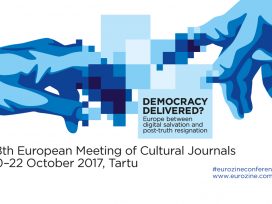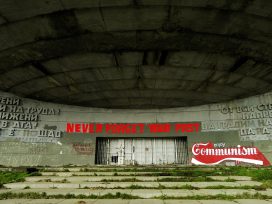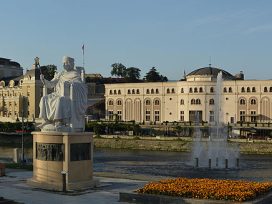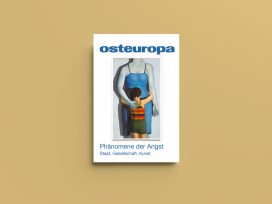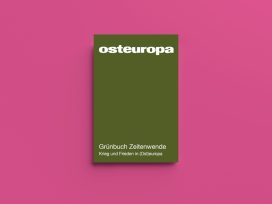More than two years ago, a small group of Bulgarian researchers in the social and human sciences (including ourselves) was struck by the rise of anti-liberal discourse in Bulgaria. Although common sense told us that it was most likely due to the consequences of the 2008 financial crisis, we decided to study it. In 2016, we conducted the study. It was large, covering the anti-liberal discourses disseminated by Bulgarian media over a period of four years (2013–2016), and popular, day-to-day perceptions of their main figures and messages. We did not research sources of funding, but some things are obvious even without research. The study clearly identified several types of anti-liberal and anti-democratic discourse which, in Bulgaria, are undoubtedly propagandistic and pro-Russian.
So we were more than amazed when we started hearing the talking points identified by our study now coming from the mouth of the new US President, Donald Trump:
- The independent media are an ‘enemy of the people’;
- Civic protests are paid-for; those who are protesting are ‘professional protesters’;
- ‘The courts are slow and political’ (i.e. not independent);
- The nation ‘first’;
- NATO is ‘obsolete’.
Can we simply assume that Moscow’s long arm is feeding identical talking points to Trump and the Bulgarian media? And to Viktor Orbán, Jarosław Kaczyński and Marine Le Pen? The Kremlin is waging a propaganda war against the West, but the official Russian media as well as the captured local pro-Russian media are far from attaining total global coverage. Even so, their messages – the primacy of national sovereignty, criticism of the hegemony of the West and of human rights, anti-Americanism and Euroscepticism, subversion of the independence of liberal institutions (of the media, the judicial system, the NGO sector and civic protests) – are gaining traction – and, moreover, are doing so in different socio-political and cultural contexts. What makes them resonate in these contexts?
Here we present the results of our study, guided by the hypothesis that we have witnessed the formation of a common populist-propaganda front that gathers and deploys forces, processes and actors that differ in scale, structure and level of organization, such as centres for strategic studies and analysis, the centrifugal forces of popular discontent, opportunistic political players and local business interests, major changes in the energy markets, and the growing difficulties of liberal governments in acting as a counterbalance to this complex, dynamic network. Large-scale as it was, our study does not unravel this entire network, but it does point to reasons why the ordinary person in the street, Donald Trump, and the Kremlin are all saying the same things.
The point is that Russian propaganda, which undoubtedly exists, co-opts themes from Western grassroots critique of liberalism and globalization, recasts both left and right populist critique in national-sovereignist and geostrategic terms, and promotes them as a free resource for undermining liberal democracy from within. And vice versa: various local actors borrow the ‘Russian propaganda package’, or parts of it, and use it for their populist-political and/or specific economic purposes.
In other words, we are witnessing a cross-pollination between local grassroots populist critique, on one side, local economic agents accustomed to leeching off the state on another side, and the anti-liberal propaganda of the state-controlled Russian media on a third side. In this process, different actors, who do not necessarily know about each other, form a common populist-propaganda discursive front, a specific ‘language’ that works with a limited set of interpretive clichés. The rise of this front is an important moment in the overall process of shifting political demarcation lines today – demarcation less and less along the lines of left/right and more and more along the lines of liberalism/anti-liberalism, globalism/isolationism.
Although it is not a solely national phenomenon, the rise of this front was analysed in detail in the study on ‘Anti-Democratic Propaganda in Bulgaria. News Websites and Print Media: 2013–2016).’ The quantitative data from this study are startling: between 2013 and 2016, the number of Bulgarian-language Eurosceptic publications per year increased 16-fold; the number of anti-US and anti-NATO publications increased 34-fold; the number of publications attacking, on the domestic political plane, the independence of the media, the independence of the judicial system and pluralism in civil society increased 23-fold; and the number of publications praising Russia for one thing or another (its ‘increased political and spiritual might’, ‘the power of Russian weapons’, etc.) increased between 42 and 144 times. As we can see, the populist-propaganda discursive front developing in the Bulgarian public sphere since 2013 is distinctly ‘pro-Russian’, although the data show that it is not always directly inspired by Russia.
What, then, are the talking points – the interpretive clichés – of the anti-liberal populist-propaganda front in Bulgaria? What exactly is Russia’s role in its rise? What types of actors use the language of anti-liberal and anti-democratic propaganda? How do populist and propaganda messages intertwine and overlap in the language of anti-liberal discourse?
We presume that Bulgaria is a specific but not isolated case – it can be used as a laboratory for analysing other contexts, too.
The talking points of anti-liberal propaganda: semantic analysis
We use the term ‘propaganda’ – not the now far more popular ‘disinformation’ – to shed light less on ‘fake news’, which is only a small segment of contemporary techniques of influencing public opinion, nor even on ‘hacking’, ‘trolling’, and the use of social networks, which are the focus of most contemporary studies. Far more important, to us, is the classical function of propaganda to disseminate ‘general interpretations’ – talking points, stereotypical clichés – which turn into a primitive ‘grammar’ framing the linguistic articulations of the world for a multitude of individuals. We are aware that unlike in the Cold War period, present-day anti-liberal propaganda is less ideological but above all negative, subversive; it does not offer an alternative positive image of the world but focuses, instead, on undermining public trust in liberal-democratic principles and institutions. Still, it works precisely by disseminating talking points.
To identify these, we chose to analyse Bulgarian print media and news websites. Print media and news websites in Bulgaria are economically the most vulnerable, meaning they easily turn into tabloids. They are also open to economic and political influences – their revenues from sales have declined drastically and, since 2002, so have their revenues from advertising, which is moving to national television stations and social networks. On the other hand, print media and news websites are the main producer of media content that is then disseminated both by television and radio stations, and by social networks.
The study was conducted in three phases: 1) Semantic analysis of the complete editions of 20 Bulgarian news websites and print media outlets; 2) Frequency analysis in the electronic archive of 3,080 Bulgarian-language websites, newspapers and blogs; 3) Content analysis of a sample of 3,305 publications in eight typologically different media outlets.
The semantic analysis and content analysis of 597 publications identified four simplistic and interrelated anti-liberal and anti-democratic theses:
- The US and NATO are a global hegemon/puppet-master which is pulling the strings both of Brussels and of national governments;
- Europe is dying because of its cultural decline (‘liberasty’) under the blows of the migrant invasion unleashed by the US, and because of the lame-duck, puppet European bureaucracy (‘Eurocracy’). In the final analysis, Europe is dying because it is united: the EU is a construction which serves the interests of the US and of global corporations, and it is an enemy of the European peoples;
- Russia is rising. Although it is a victim of Western aggression, Russia is a guardian of its age-old sovereignty and of traditional values, and it is actually the true saviour of Europe;
- Bulgaria’s liberal elites are venal: civic movements, human rights organizations, independent media outlets, pro-western politicians and parties are represented as an indistinguishable whole, and all of them are ‘foreign agents’ – puppets of foreign interests.
So far, there is nothing surprising – taking into account also some variations, these are the much-studied talking points of official Kremlin propaganda.
The connection between the above talking points is conspiratorial, and the conspiratorial grammar is simple: global hegemon (a role most often assigned to the US and NATO, or to George Soros) – puppets (all inconvenient institutional and personal actors) – victims (‘the people’). On the international plane, the conspiratorial logic serves to discredit human rights, which are represented as a smokescreen for promoting ‘hegemonic interests’ (thereby eliminating any international pressure and control over the ‘sovereign’ agent conducting the propaganda in question). On the domestic plane, conspiratorial propaganda serves to silence every inconvenient speaker, who is represented as an ‘agent of foreign interests’ (thereby eliminating domestic pressure and control). Of course, the use of conspiracy for propaganda is nothing new: condemning ‘the enemies of the people’ – on the domestic and international planes – is well-known from the time of Stalinism as an effective mechanism for consolidating totalitarian power and, in a softer version it is also effective in consolidating the authoritarian-oligarchic power of the present regime in the Kremlin. However, what are the origins and functions of this vocabulary of conspiracy in Bulgaria? After all, it is an EU member country with stable pro-European public attitudes in recent decades, and with democratic institutions that are, if not well-functioning, then at least not totally captured. When, and how, does the anti-liberal discursive front go on the offensive?
One of the important empirical findings of the semantic analysis was that each of the talking points of anti-liberal propaganda already has its specific vocabulary (idiolect) – a semantic cluster of labels and labelling phrases was identified for each of the talking points, through which the respective talking point is promoted. For example, the Eurosceptic cluster is represented by a list of 53 keywords and specific phrases, such as ‘Gayrope’ and ‘European oligarchy’. The fourth cluster, designed to discredit Bulgarian civil society and domestic political opponents, is the richest – it contains 119 keywords and phrases, such as ‘tolerasts’, ‘grant-spongers’, ‘liberal fascists’, and ‘Western lackeys’.
Precisely the existence of common talking points outlining a conspiratorial ‘grammar’ of articulation of the world, as well as of a specific ‘vocabulary’, allows us to speak of ‘propaganda’ and of ‘propaganda language’ in a narrower sense (taking into account the high level of coincidence of Bulgarian talking points and their vocabulary with those of official Russian propaganda).
The rise of the anti-liberal front: Frequency analysis
As we already noted, if we compare 2016 with the ‘distant’ 2013, the number of publications per year reproducing one or other of the above talking points increased between 16 and 144 times. The data are from an automated analysis of the number of articles promoting each of the propaganda theses, found in the electronic archive of 3,080 Bulgarian-language news websites, newspapers and blogs for the period between 1 January 2013 and 31 December 2016. (See table.)
Here are just some of the main data and conclusions from the measurement of the frequency of use of each of the talking points:
The talking point about ‘Bulgaria’s venal elites’, which is designed to discredit civic movements, independent media outlets, human rights organizations, and pro-western political leaders and parties, is the most frequently reproduced. In addition, this is the only talking point found in a significant number of publications already in 2013 (494 articles). Although it did not increase the most (by 26 times in four years: to 11,394 articles in 2016), the number of articles using this semantic cluster remained almost double the size of all other semantic clusters until the end of the period. Through a content analysis of publications on peak days, we found that the articles promoting this talking point most often directly discredit pro-reform movements and initiatives (the anti-government protests of the summer of 2013, the attempts at conducting a serious judicial reform after 2014, etc.), as well as the civic organizations, media outlets and political actors supporting those initiatives. The absolute peak in the number of such publications was on 13 November 2016 (232 publications on this day alone), the day Bulgaria’s incumbent President Rumen Radev won the second round of the presidential election (it is noteworthy that his election campaign was largely based on Russian talking points: ‘Crimea is de facto Russian’, ‘the sanctions against Russia must be lifted’, ‘Bulgarian foreign policy must be made in Sofia [i.e. not in Brussels]’, etc.
We also found that the Kremlin’s anti-Maidan talking points are directly translated for domestic political uses and purposes. What was yet to happen, as of 2013, was the alignment of these domestic uses to the direct promotion of geostrategic theses. That is because foreign-political propaganda theses were practically absent in 2013: Euroscepticism in newspapers and websites was low (109 publications lamented ‘The decline of Europe’ in 2013 – as compared with 1,841 in 2016) and there were almost no anti-US and anti-NATO discourses (69 publications in 2013 – as compared with 2,361 in 2016).
Praise for Russia was also very low in Bulgaria in 2013. For the purposes of frequency measurement, ‘the rise of Russia’ talking point was subdivided into five separate propaganda sub-theses: 1) ‘Russia’s increased political and spiritual might’ (epithets building Russia’s overall positive image); 2) ‘Russia’s enemies’ (epithets labelling Russia’s critics as its ‘enemies’); 3) ‘the power of Russian weapons’ (epithets praising Russian military power); 4) ‘Crimea and Ukraine’ (epithets promoting the thesis that Crimea is intrinsically Russian and that the Euromaidan was a western coup); 5) ‘sanctions against Russia’ (epithets promoting the thesis that the sanctions imposed after the annexation of Crimea are unjust and part of the West’s war against Russia). The purpose of this subdivision was to find to what extent, and when, the specific theses of official Russian propaganda are directly translated into the Bulgarian public sphere.
The data are startling:
- In 2013 there was no discourse against the sanctions since they had not been imposed yet. In 2016, however, we found 4,005 publications containing the keywords of this discourse.
- The number of publications supporting the official Russian thesis about Crimea and Ukraine in 2013 was 56 (all of them at the very end of the year, after the beginning of the Euromaidan protests). This grew to 6,109 in 2016.
- In 2013, the Bulgarian media made no mention of ‘Russia’s enemies’, even though the EU and NATO had long since expanded and reached almost their present extents (we found just 54 publications). In 2016, however, phrases such as ‘enemies of Russia’, ‘aggression against Russia’, and ‘war against Russia’ were found in 7,511 publications.
- The number of articles praising Russian weapons rose from 22 (in 2013) to 745 (in 2016), while articles praising Russia in general soared from 44 to 1,326.
The conclusion is that Russian propaganda theses were introduced directly into the Bulgarian media sphere at the end of 2013 (after the beginning of the Euromaidan protests), and especially in March 2014 (with the annexation of Crimea). The talking point promoted in the highest number of publications is that Russia is a victim of aggression by the West (Russia is encircled by ‘enemies’); compared with this, the number of publications praising Russia’s political and spiritual might is significantly lower. This confirms our conclusion that present-day anti-liberal propaganda is mostly negative and subversive, aimed more at discrediting liberal democracy than at building a positive image that offers an alternative way of life. The data also show that the two practical-political theses of official Russian propaganda – Krym nash (Crimea is ours) and ‘the Euromaidan was a putsch orchestrated by the West’ – as well as the thesis that the Western sanctions are unjust, predominated in a specific way: they saw the most sustained and steepest growth from 2014 to the end of 2016, and were promoted by а significant number of articles.
The direct links of Bulgarian pro-Russian propaganda to Russian official propaganda are obvious upon comparison with the international and the Russian political calendar (see table). All five pro-Russian theses spiked in connection with the events in Ukraine in November–December 2013, the annexation of Crimea in March 2014, the imposition of sanctions in July and September 2014 and the escalation in Donbas in the same year, the migrant crisis in Europe and the Russian intervention in Syria (portrayed as a campaign ‘to save Europe’) in 2015 and the meetings of the G7 in Davos and of NATO in Warsaw in 2016.
The frequency of pro-Russian publications in Bulgaria is also dictated by the Russian political calendar, particularly the celebration of the first anniversary of the annexation of Crimea on 18 March 2015 and around the 9 May Victory Parade in Moscow in the same year, and Vladimir Putin’s statement in Dushanbe in September 2015, in which he declared Russia to be Europe’s saviour from the migrant invasion. Eurosceptic (‘The decline of Europe’) and anti-US and anti-NATO publications (‘The US/NATO as global hegemon/puppet-master’) also first appeared at the end of 2013 and had analogous peaks.
The general conclusion is that the mass dissemination of all geopolitical propaganda theses – ‘the US/NATO as global hegemon/puppet-master’, ‘the decline of Europe’ and ‘the rise of Russia’ – began simultaneously and in terms of peak intensity followed approximately the same ‘Russian’ curve (see table).
The data prompt two important questions:
- Why was the propaganda vocabulary first put to use for discrediting domestic political opponents and civil society in Bulgaria?
- What exactly was the Kremlin’s role in the rise of the populist-propaganda front in Bulgaria, and what was the contribution of local actors?
In 2013, a wave of civic protest swept across Bulgaria. It began with mass anti-monopoly protests in February and March against the lack of state control over the electricity distribution companies; this led to the resignation of Boyko Borisov’s government (the GERB party). After a brief lull and elections, June 2013 saw a new wave of mass demonstrations and anti-oligarchy protests (lasting, with varying intensity, until mid-2014). The latter were caused by the appointment of a notorious Bulgarian oligarch, Delyan Peevski, as head of the State Agency for National Security (DANS) and eventually led to the resignation of Plamen Oresharski’s government. In a sense, the Bulgarian civic protests of 2013 were the culmination of previous discontentment: a mass teachers’ strike in 2007, but also a series of protest actions by various occupational groups, protests against ACTA (the Anti-Counterfeiting Trade Agreement), and intense and large-scale protests by environmentalists.
Culminating in the massive protests of 2013, all of these were similar to the global protest movements (Occupy, Indignados, Gezi Park) and differed significantly from the Bulgarian and other eastern European protests of the 1990s, as well as from the later ‘colour revolutions’. The ‘velvet’ and the ‘colour revolutions’ demanded a change of the political system, but did not question the role of ‘the state’ as a framework for the political. Conversely, the Bulgarian protests of 2013 (and, more generally, after 2007, the year Bulgaria was admitted to the EU), as well as protests in countries with a more established democracy, increasingly questioned precisely the role of ‘the state’ as a reliable and honest regulator of social relations: they accused the state, personified by the political class, of failing to perform its function of a just regulator of the public interest, and of turning into an instrument of injustice: serving ‘private’ corporate interests that are ‘foreign’ to the public interest. Hence also the accusation, characteristic of both the global and the Bulgarian protests, that the political elites were ‘conspiring’ against the public interest (the ‘1%’ versus the ‘99%’) and had turned into an ‘oligarchy’.
Of course, in the Bulgarian protests of 2013, as well as in all similar protest movements, there was a distinct populist moment. The criticisms of those protests, similar to the criticisms of the Occupy movement and of the Indignados, focused above all on the fact that they were negative, without a positive project for the future, that they were a moment not a movement of protest. Negativity – and this is a commonplace in social theory – is something natural for protest movements because it is readily universalizable and can mobilize support effectively. What is interesting, however, is that these diffuse and dispersed protest movements subsided when their idioms were expropriated and subverted in a way which, amazingly, was the same in the US, Hungary and Bulgaria.
Of course, it is a standard move by governments trying to discredit the protests against them to claim that these protests serve ‘private interests’ or that they are directly ‘paid for’ by somebody. After the 2011–2012 protests in Russia and fearing a ‘colour revolution’, the Kremlin exposed ‘the sponsor of the protests’ in a univocal geopolitical direction: Soros, the Americans, and the political hawks in the West who are their allies. Similarly, in Bulgaria, the anti-oligarchy protests, as well as all human rights organizations, independent media outlets and independent judges, were declared to be paid-for by ‘Soros’ and by the America for Bulgaria Foundation. Critics of oligarchy were thus declared to be oligarchs – again, their language was expropriated, stereotyped and turned against them: now it was not the political elite but the protesters who turned out to be promoting both private and ‘foreign’ interests with public funds. The strategic use of the techniques of ‘post-truth’ – propaganda – injects inverted but persistent meanings into the turbulences of social discontent, thereby silencing them. Leeching off the language of social discontents, propaganda becomes an instrument for blocking civic resistance.
Thus, in the Bulgarian case, the populist negative critique was expropriated and inverted by the local oligarchic circles which turned it, through their media outlets, into a Russian-style propaganda instrument silencing every criticism against the oligarchy. The vocabulary of Russian propaganda turned out to be convenient, and Russia turned out to be a ‘role model’ for local business interests using the nation-state as their ‘private’ resource both against global competition and against local civic resistances.
This partly also answers the second question about the extent of the Kremlin’s role in the rise of the populist-propaganda front in Bulgaria. It is certain that the introduction of anti-liberal propaganda discourse into Bulgarian media was not directly inspired by the Kremlin – at least, not entirely, or even predominantly. In 2013, anti-liberal propaganda initially worked entirely on the domestic political plane: it tried to discredit the mass anti-oligarchy protests that called for the return of the institutions of the liberal democratic state to their main function: the protection of the public interest and the guarantee of pluralism and of the separation of powers. In 2013, geopolitical propaganda – anti-EU, anti-US, anti-NATO, and praise for Russia – was practically absent. Both the introduction of anti-liberal propaganda and its increasing use must therefore have been inspired by local politico-economic interests. Anti-liberal propaganda in Bulgaria started out above all as a home-grown phenomenon, not as an effect of direct Russian interference. Russian interferences, however, can be detected at a later stage, as evidenced by the coincidence both of the introduction of the geopolitical aspects with the annexation of Crimea, and of their coincidence with the Russian political calendar.
This indicates an initial tactical borrowing of Russian propaganda tropes and their implantation into the Bulgarian media discourse for domestic political purposes. What is more, a significant part of the vocabulary for discrediting domestic political opponents is directly calqued from Russian: words like ‘tolerast’, ‘liberal-fascist’ etc., are used like ready-made meals and popped in the local oven to serve a complex alliance of interests. This alliance of interests in Bulgaria does not have a single party representation or work consistently ‘pro’ or ‘anti’ any party; rather, it creates different media outlets, often with different party affiliations – media outlets that can be used tactically at any moment to discredit both the government, whichever it may be, and any other political or civic actor. In fact, insofar as the politico-economic interests behind the media outlets are different, so the targets of populist propaganda also vary. However, these interests form an alliance, reaching ‘consensus’ whenever they want to attack an initiative or actor fighting for more control and public transparency, above all through reform of the judicial system.
Propaganda uses of the talking points: Content analysis
In 2013, the initial import of Russian propaganda tropes was in the form of ‘ready-made meals’, of ready-to-use interpretations, fast theses in a scarce and underpaid journalistic environment prone to serving conflicting domestic interests. Only half a year later, the picture was quite different. After the annexation of Crimea, the number of publications using the keywords from the Eurosceptic, anti-American, and pro-Russian semantic clusters began to grow exponentially. Were they also ready-made interpretations for domestic-political and oligarchic consumption? To identify the different use of the populist-propaganda tropes, we drew an additional sample of 3,305 publications from eight media outlets that differ by type of generated information, type of dissemination, and type of target audience. In this analysis of media content, we united the topics on American hegemony and on the death of Europe into one topic called, for short, ‘The decline of the West.’ Here we present some of the conclusions of the content analysis.
Publications devoted to geopolitical topics are predominantly anonymous. The favourite topic of anonymous publications is the rise of Russia, and the favourite genre on this topic is the news report (see table).
The anonymous news report is definitely not part of the repertoire of popular discontents. It is pure propaganda – a technique of saturating the information environment with materials that resonate not with any social discontent or aspiration, but with the view of contemporary reality as a set of facts. The accumulated ‘facts’ are intended to ‘speak for themselves’. What, then, does the ‘reality’, fabricated by this technique look like?
Russia’s image is promoted elliptically by historical analogies. There are two main lines of analogy. First, Russia is portrayed as an innocent victim of aggression, as it was during the Second World War. Recent aggression towards Russia is of three types: the creation of a front along its western border; unwarranted sanctions; and a smear campaign by western media which wrongfully accuse it of being a military aggressor, while it is in fact a peacemaker (analogies are drawn between Donetsk, Aleppo and Stalingrad). Second, Russia is portrayed as Europe’s liberator. While, in the Second World War, Russia liberated Europe from fascism, now it is liberating Europe simultaneously from Islam, from American hegemony and from the moral corruption of liberalism. The more anonymous the publication, the more likely it is to promote these items of official Russian propaganda.
Another geopolitical thesis that is predominantly expressed anonymously (although not as much as the pro-Russian one) is that Europe has been captured by the institutions of united Europe which, in their turn, are a conduit of US interests. In other words, the aim is to promote Euroscepticism through anti-Americanism. Liberal values are a US weapon that is weakening Europe – multiculturalism and human rights are American weapons against European identities. In addition, after destroying Europe’s immunity through multiculturalism and human rights, the US is also using a more direct weapon: the Islamic deluge. So what is left of Europe? The answer is: nation-states.
However, aren’t we classifying as propaganda something which is in fact criticism? This is precisely what anti-liberal propaganda plays on: it uses critical figures that are immanent to the liberal political and cultural universe. But, we must remember that propaganda (as well as ‘post-truth’) is not simply lying: it is a regime of partial truth, half-truth, truth out of context, which is packaged, mobilized and used to play on existing stereotypes and resentments.
How does this play out in domestic-political publications? This is done by denouncing multiculturalism and political correctness, which are American weapons against Europe. To reject them is not wrong, it is a noble and brave act. Those who accuse you of hate speech only prove that they are American agents (in the softer version: a conduit of foreign interests). Hate speech is assigned the status of a civic virtue – it alone is ‘sincere’ and ‘truthful’.
This clearly shows how anti-liberal propaganda reworks and packages the aspirations of home-grown populism. Sociologists in Bulgaria have long since pointed out one typical effect of the sense of social injustice: the accusation of parasitism against the Roma minority, a condition that is claimed to be ‘inborn’ and which the political elites use in order to stay in power. The home-grown populist moment here is in the notion that Roma rights are not rights but privileges that deprive the rest of the population – that is, the non-Roma population – of rights. Here, propaganda – and it is obvious that this is propaganda, not disinformation – resorts to the classical time-tested techniques of creating moral panic about a minority, adds to its image that of the refugees and migrants, and declares hate speech towards all of them to be a civic virtue. The effect of this transformation of civic resentment (the populist moment) into a virtue goes far beyond inciting the public against minorities. It above all promotes the thesis of national sovereignty as the prime European value – one which is being systematically destroyed by the EU, a conduit of American hegemonic interests. Which, exactly, is the populist resentment that is cultivated by this propaganda scheme? That we – Bulgarians – are ‘second-hand Europeans’ and that they – westerners – ‘come on all-inclusive package deals to Bulgaria on their welfare payments, while we care for their old people and clean their houses.’
In order to distinguish between direct Russian propaganda in Bulgaria and the tactical uses of its freely circulating clichés, we looked at three types of media: 1) geopolitical propaganda media outlets (prevalence of foreign-political publications and prevalence of the topic ‘Russia’ over the topic ‘Bulgaria’ – the newspaper Rusiya Dnes, the magazine A-specto and the PIK News Agency); 2) media outlets using propaganda tropes for domestic political purposes (prevalence of domestic-political publications and categorical prevalence of those on the topic ‘Bulgaria’ over those on the topic ‘Russia’ – the daily newspapers Duma and Trud, and the weekly tabloid Weekend); and 3) media outlets combining geopolitical propaganda with domestic politics (prevalence of foreign-political over domestic-political publications, but prevalence of the topic ‘Bulgaria’ over the topic ‘Russia’ – the websites Pogled-info and Glasove).
A-specto is a magazine with elitist pretensions, something like a journalistic ‘think tank’ in which most of the articles are devoted to global political and economic problems, and whose editors as well as whose leading authors are relatively well-known and identified as ‘leftist’ journalists. The ‘leftist’ profile of the magazine, however, is very problematic because, ever since its launch, the critique of the hegemony of neoliberalism has been automatically and systematically ‘translated’ into realpolitik, geostrategic and even directly nationalist terms such as ‘hegemony of the US and its Euro-Atlantic allies’. The US is the ‘arch-villain’ in 43 per cent of the articles in A-specto – wholly in line with the Russian model, with distinct defence of Russian ‘national-sovereignism’. Also symptomatic is the moment of the launch of the magazine – the maiden issue was published in April 2014, a month after the annexation of Crimea, and even in this issue there are articles defending Ukraine’s geopolitical kinship with Russia or telling the history of ‘Ukrainian fascism’. Issue no. 28 of July 2016 is wholly devoted to defending the thesis that Crimea is Russian – staff members even went to Crimea to interview senior government officials. In other words, A-specto is a direct conduit of the Russian geopolitical talking points and functions entirely in line with the agenda and priorities of official Russian propaganda. The articles in it are widely disseminated through the newspaper Duma, which represents the Bulgarian Socialist Party (BSP, the successor of the Bulgarian Communist Party), through the propaganda digest Pogled-info, which is linked to the same party, and through media outlets such as Glasove, Epitsentar, and Trud. Of late, A-specto has increasingly been reprinting ‘appropriate’ articles translated from Russian, probably because most of its leading authors are already busy pursuing a political career: in the last presidential and parliamentary elections, the BSP tried to ride the propaganda-populist wave, with the journalist Ivo H. Hristov becoming PR officer and then Chef de Cabinet of the newly elected president, Rumen Radev, and the journalists Alexander Simov and Toma Tomov and the sociologist Ivo A. Hristov becoming BSP MPs.
Unlike the directly propagandistic magazine A-specto, the tabloid Trud, which belongs to the second type of media outlet, also uses geopolitical talking points as a general framework, but it uses them purely tactically, simply because they are convenient and accessible, to promote properly domestic-political messages – here the use of propaganda clichés for discrediting domestic political opponents is more frequent than the use of geopolitical clichés.
This is most obvious in the data from the structural analysis to which the articles from the archive were subjected. In Trud the US is the arch-villain in 5.3 per cent of the articles, but these are nevertheless outnumbered (7.2 per cent) by those in which the arch-villain is ‘the Capital circle’ – a specific local propaganda label designating two pro-liberal media outlets (the weekly newspaper Capital and the news website Dnevnik) and implying their oligarchic connection within a wider oligarchic network. Trud also consistently uses the discursive strategy for de-legitimating the Maidan in Kiev and the colour revolutions more generally, in order to vilify all sorts of organizations and activists connected to judicial reform and the environmental protection movement. Trud, incidentally, was bought by its present owner, Petyo Blaskov, with a loan from First Investment Bank, a bank connected to a major entrepreneur in ski tourism and in the development of areas for whose status environmental activists are fighting to preserve as protected areas. Here the vilification of the NGO sector and civic movements, used by the Kremlin to prevent and suppress the rise of Maidan-like sentiments in Russia itself, is used as a rhetorical smokescreen in the promotion of entirely concrete economic interests.
It is also symptomatic that although the media outlets sampled promote clearly anti-liberal, Eurosceptic and pro-Russian propaganda, they do not identify themselves explicitly with a single party – neither the openly pro-Russian nationalist party Ataka nor the BSP, a party traditionally oriented, at least through one of its factions, towards the Kremlin and Russian energy projects. The attitude towards Boyko Borisov (the incumbent prime minister for the third time and leader of GERB, a centre-right party that is a member of the European People’s Party) is emblematic, though. In the overall list of antagonists from the sample, he is second after the US. However, in three of the media outlets – Trud, Weekend and PIK – we see that he is seldom, if ever, cast in the role of ‘villain’. It is precisely these three media outlets, which overtly encourage cynicism through messages that ‘all politicians are scoundrels’, that covertly support Borisov, advising him to avoid ‘bad partners’ who want greater public control over institutions and, above all, deeper judicial reform.
Populist critique calls for popular sovereignty and the return of nation-states against the international community, which allegedly is nothing other than a mask for the greed (colonialism and imperialism) of the West combined with its logistical and military weakness. What does this national-sovereignism look like? The semantic analysis of the messages from all media outlets shows that national-sovereignism is the negation of multiculturalism, of intercultural coexistence and of institutionalism; it rhetorically takes away democracy from institutions, but also from the civic process, and assigns it to the people. But isn’t this true of democracy, albeit of an illiberal type?
To answer this question, let us see what the demos of this ‘democracy’ looks like, and ask: what does it want? The answer is that it doesn’t want anything, except to be left in peace to look after its private affairs and not to deal with the big issues, because ‘small humans aren’t cut out for big things.’ What does this demos do? Nothing, because whatever it may do wouldn’t matter, while the fact that it does nothing shows that it is wise; it is wise because it is inactive and this is a virtue. In addition to being wise, it is naturally honest, calling a spade a spade – it calls refugees ‘Gypsies’, and Gypsies ‘animals’. Packaged by propaganda, the leftist and rightist populist voices have lost their differences, merging into a nationalism of the most banal and primitive kind. There are many reasons for this, among which just one is the easy adoption of the Kremlin’s ready-to-use interpretations, which serve to maintain an authoritarian-oligarchic regime that structurally has a stake in the inaction of citizens.
It is not only the Kremlin that has a stake in the inaction of citizens and in the weakening of international regulations – in the Bulgarian case, in the weakening of the EU. The stakeholders are many – and most of them are local.


